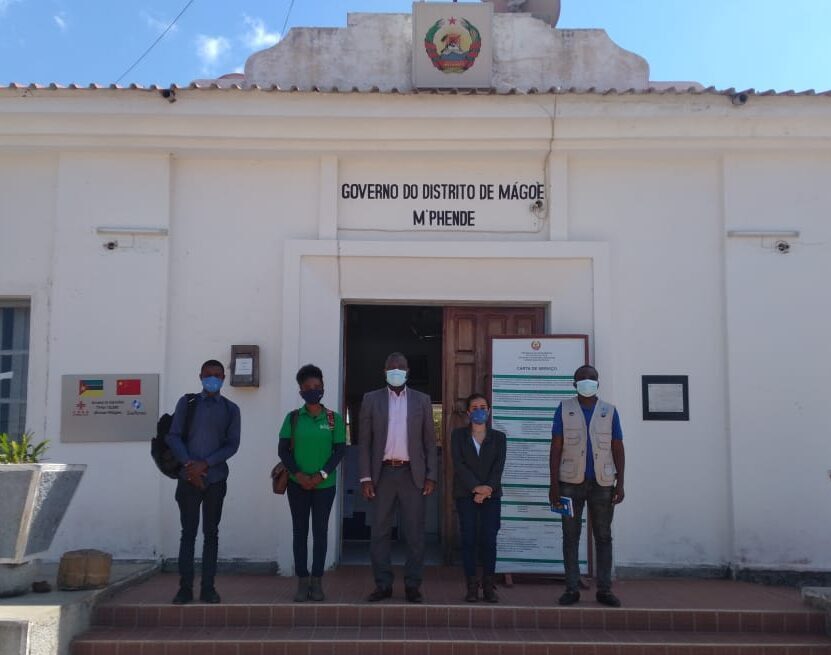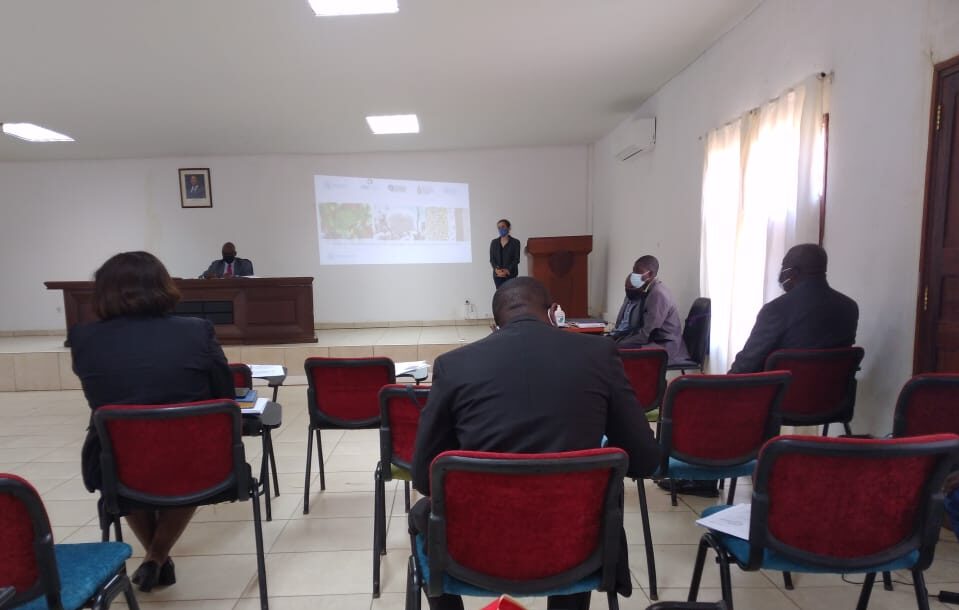
Between August 1st and 8th, the Beyond Cotton team in Mozambique went on a field mission to present the project to local government partners. The activities took place in the provinces of Tete (districts of Magoe, Cahora Bassa and Moatize) and Manica (districts of Guro and Barue) and had the support of the Mozambique Cotton and Oilseed Institute (IAOM) and the WFP. Activities included presentations on the project and the Annual Operating Plan during monthly district government meetings.
“This activity was necessary for the local government to familiarize itself on the details of the project and to be an active partner during the entire period of execution in the participant districts and communities”, said Marisete Araújo, Beyond Cotton local coordinator. Other important actions in this mission were meetings with representatives from the Local Services for Economic Activity (SDAE) to discuss their active and direct involvement in the project, in partnership with the WFP. SDAE technicians will be trained and will disseminate knowledge and techniques to farmers in the Tete and Manica provinces.

The Beyond Cotton Project in Mozambique
The project’s goal is to support small cotton producers and public institutions to link cotton by-products (seed oil, cottonseed meal, etc.) and intercropped crops (corn, sorghum, beans etc.) to safe markets, including local school feeding programs. It aims to improve production, local income and food and nutrition security for smallholder farmers.
In Mozambique, around 1,500 farmer families and 31,000 students covered by the Mozambique National School Feeding Program (PRONAE) are set to be benefitted. In the country, the project is run by the WFP Centre of Excellence Against Hunger and the WFP Country Office in partnership with the Brazilian Cooperation Agency (ABC), the Government of Mozambique (through the Cotton and Oilseeds Institute) and the Federal University of Lavras (UFLA). Learn more >>>




